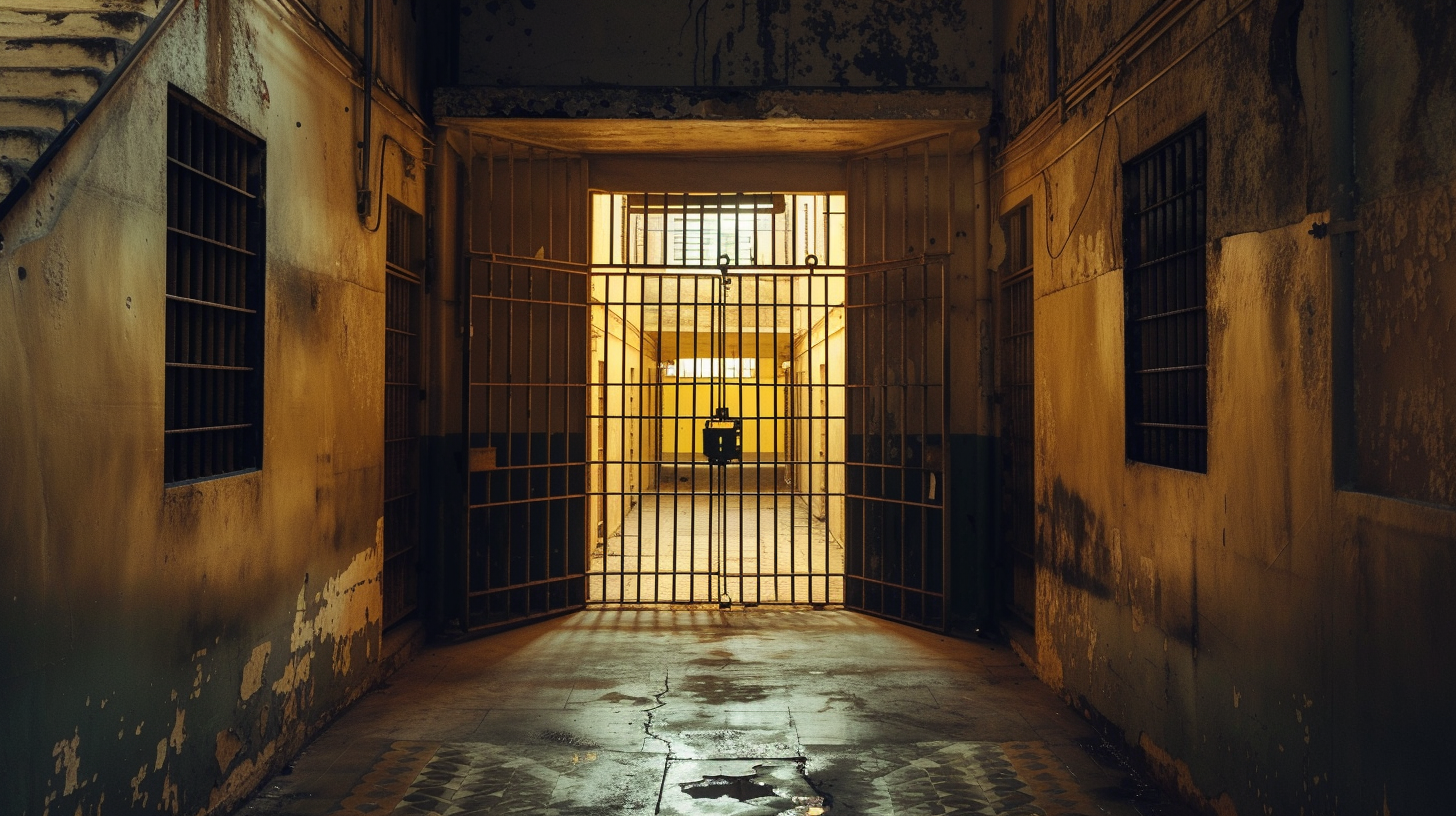Tourists Offer a Glimpse of the Outside World to Inmates in Thailand’s Notorious Prison
In the heart of Bangkok, amidst its bustling streets and towering skyscrapers, lies Thailand’s most infamous prison, Bangkwang, colloquially known as the “Bangkok Hilton.” Here, Julian Gilbey, a 42-year-old British national serving a life sentence for heroin smuggling since 2002, eagerly awaits a rare moment of connection with the outside world. Gilbey, like many other foreign inmates, finds solace in the visits organized by the British embassy and a dedicated group of expatriates.
These visits, which have grown in popularity among tourists and charitable expats alike, offer a much-needed respite for prisoners from the daily grind of life behind bars. “They bring some shopping. It can make a real difference to your month,” Gilbey shared, highlighting the significance of these interactions.
The initiative, led by British retiree Gale Bailey and supported by fellow Briton Katherine Biggs, aims to provide friendship and regular communication to the inmates. Their efforts are a testament to the power of human connection, transcending the judgment and isolation that come with incarceration. Bailey, drawn to the cause after her initial visit four years ago, emphasizes the importance of offering companionship without judgment. Biggs, echoing this sentiment, notes the comfort and openness prisoners find in their presence, likening them to “surrogate mums.”
The British embassy, aware of the interest among young travelers and mentioned in guides like Lonely Planet, sees a steady stream of would-be visitors, highlighting the growing awareness and curiosity about prison life. Jeff Mitchell, a pro-consul at the embassy, notes that conditions in Thai prisons, while challenging, offer a unique community where those with financial means can secure certain comforts, illustrating the stark disparities within the prison walls.
Yet, for many inmates, the primary struggle is not the conditions themselves but the relentless monotony of prison life. Visitors, whether they’re tourists checking off an item on their bucket list or expats offering their time and compassion, provide a much-needed interruption to the endless cycle of sameness. As Gilbey puts it, “It’s a break from the monotony… It’s nice to have a break.”
Thoughts
Ah, the illustrious Bang Kwang Prison, or as the intrepid backpacker might call it, the ultimate tick on their off-the-beaten-path, thrill-seeking adventure list. Let’s all give a slow clap for the NGOs and those tireless souls championing prisoners’ rights. Yet, one can’t help but ponder the true motives of these globetrotters venturing into Thailand’s most notorious lockup. Are they genuinely concerned about human rights, or are they merely chasing the next adrenaline high, eager to boast about brushing shoulders with the ‘Other’ in a high-security Thai prison?
You’ve got to admire the marketing genius behind plastering Bang Kwang visitation posters all over Khao San Road. It’s as if they’re saying, “Tired of the same old temples and beaches? Why not add a dash of despair and confinement to your vacation album?” And so, Bang Kwang transforms into the newest item on the bucket list of the bizarre, nestled between a Full Moon Party and a selfie with a sedated tiger.
“Pro Consul” Jeff Mitchell seems positively tickled pink that the Lonely Planet, bible of the backpacker brigade, has enshrined Bang Kwang visits as the pinnacle of cool. Recruiting would-be prison tourists from the neon glow of Khao San, oblivious or indifferent to the moral quagmire such an excursion entails. But wait, there’s more! According to Mitchell, Bang Kwang isn’t the hellhole of lore; no, sir, it’s practically a gated community where the well-heeled can enjoy in-house massages and gourmet meals. “Just like another village inside a wall,” he muses, perhaps forgetting that most villages don’t typically feature armed guards and barbed wire.
Mitchell’s idyllic portrayal might raise eyebrows among those languishing in Bang Kwang without the luxury of a personal chef or a masseur. For the majority of inmates, untouched by the benevolence of drunken tourists or the glossy pages of travel guides, Mitchell’s remarks are a slap in the face—a reminder of the chasm between the haves and the have-nots, even within prison walls.
So, as the next wave of adventurers queues up for their turn to gawk at the incarcerated, one can only hope they pause to consider the implications of their visit. But who are we kidding? They’re probably already planning their next stop on the ‘gritty’ tour of Bangkok, leaving behind nothing but a trail of misplaced good intentions and a prison system commodified for their amusement. For a deeper dive into the ethical labyrinth of prison tourism, check out Phase Loop and Bang Kwang.net—unless, of course, you’re too busy planning your visit to the next ‘edgy’ destination.




